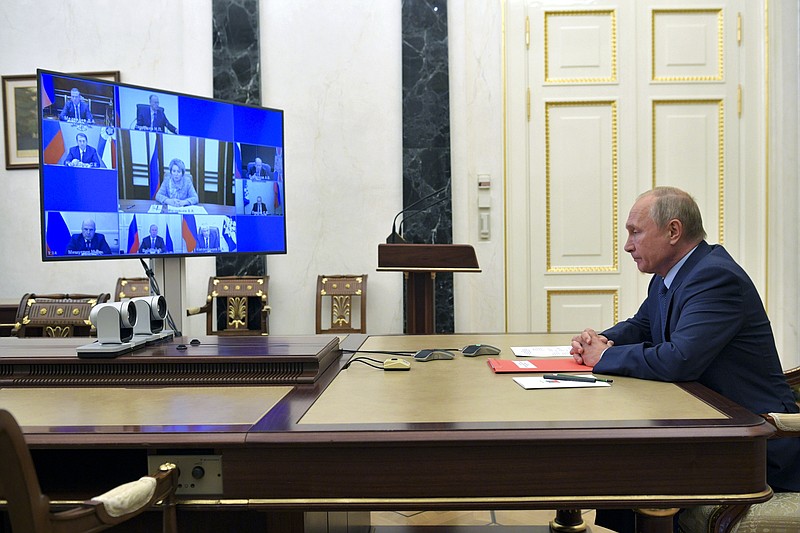WASHINGTON -- The U.S. and Russia on Friday rejected each other's proposals for potentially salvaging the last remaining legal constraint on their strategic nuclear forces. President Vladimir Putin called for an unconditional extension of the soon-to-expire New START treaty, and the White House called that a "non-starter."
President Donald Trump's national security adviser, Robert O'Brien, suggested the Russians rethink their stance "before a costly arms race ensues." Administration officials have previously alluded to building up nuclear forces if the treaty is abandoned, even as the Pentagon is already paying for a one-for-one replacement of older nuclear weapons.
Although Trump says he favors nuclear arms control, he has called New START flawed and unfavorable to the U.S. Last year he withdrew the U.S. from a separate nuclear arms treaty with Russia, and this year he began engaging the Russians on the future of the New START deal.
Democratic presidential candidate Joe Biden, who was vice president when New START was negotiated during the Obama administration and ratified by the Senate, has said he would not hesitate to agree to Putin's original proposal for a five-year extension of New START.
The Trump administration recently proposed a one-year extension of the 2010 treaty, which is set to expire in February, but it said this must be coupled with the imposition of a broader cap on U.S. and Russian nuclear warheads. The cap would cover warheads not limited by the New START treaty. Putin said Friday a one-year extension was acceptable but should not be conditioned on a wider cap on warheads.
Washington accuses Moscow of cheating and of aspiring to a nuclear buildup. The Defense Intelligence Agency last year projected that Russia's overall stockpile of nuclear weapons would "grow significantly" over the next decade, driven by an increase in shorter-range, or nonstrategic, weapons that are not governed by the New START treaty.
For its part, Moscow is suspicious of U.S. missile defenses, which it believes could undermine the credibility of its strategic missiles.
Putin on Friday offered to extend New START "without any conditions for at least one year" to allow time for talks with Washington on a follow-on treaty. He said Russia is agreeable to including its newest nuclear weapons, some of which are now being deployed, in future arms talks with the United States. But he made clear that an extension must be unconditional.
Speaking at a meeting of his Security Council, Putin said that "it would be extremely sad if the treaty ceases to exist without being replaced by another fundamental document of the kind."
"All those years, the New START has worked, playing its fundamental role of limiting and containing an arms race," he said.
Just a few hours later, O'Brien issued a statement regretting Moscow's position and touting the U.S. approach, which he said "would have been a win for both sides." He said he had thought the Russians were willing to accept the American proposal when he met with them in Geneva on Oct. 2.
"President Putin's response today to extend New START without freezing nuclear warheads is a non-starter," O'Brien said. "The United States is serious about arms control that will keep the entire world safe. We hope that Russia will reevaluate its position before a costly arms race ensues."
After both Moscow and Washington withdrew from the 1987 Intermediate-range Nuclear Forces Treaty last year, New START became the only nuclear arms control deal between the two countries still standing.
Russia previously offered to extend the pact for five years without any conditions, while the U.S. pushed for a new arms control agreement that would also include China. Moscow has described that idea as unfeasible, pointing to Beijing's refusal to negotiate any deal that would reduce its much-smaller nuclear arsenal.
Information for this article was contributed by Matthew Lee and Vladimir Isachenkov of The Associated Press.

